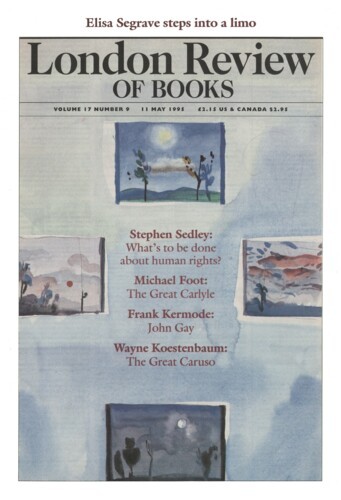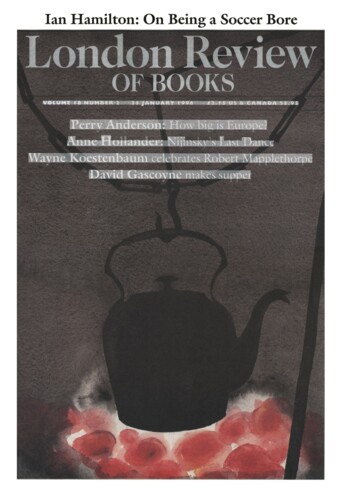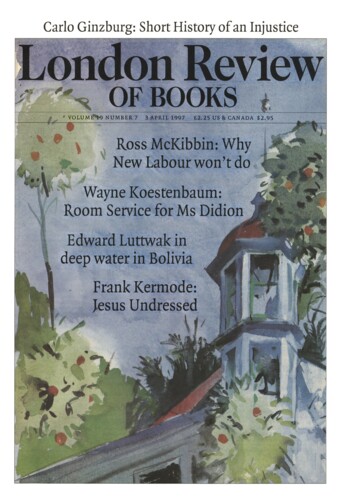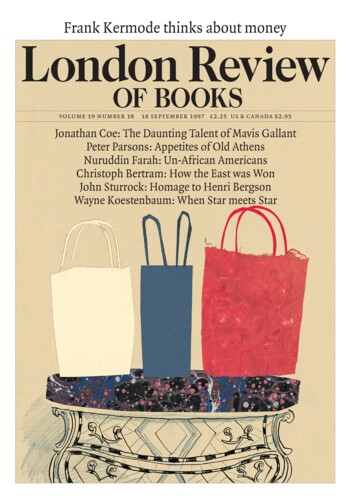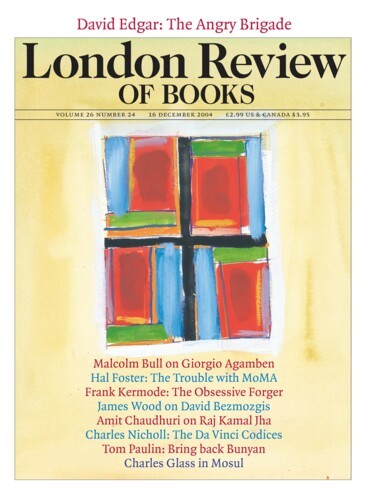Mimmi’s Story
Wayne Koestenbaum, 11 May 1995
I have no special love for the voice of Enrico Caruso, perhaps because it does not need me to rescue it; classic, impervious, it awaits eternity – it has already arrived at eternity – and demands no fan, no patient posthumous acolyte, to alchemise it. The Caruso voice, as his son describes it, in Enrico Caruso: My Father and My Family, a story as pathetic, plodding and perverse as any I have read, is a pure column of air; without flaw, it assails low and high notes alike with plump machismo, sometimes sobbing, sometimes finishing off the breath with a punctuating snarl. When impersonating a Jew (La Juive), the voice might feign abjectness, but it is always confidently public – aimed toward the receiving phonographic horn rather than toward a frailty-seeking inward ear. Therefore I need the son’s sad tale so that I might re-imagine the Caruso voice as also bearing a freight of pathos and want; so that I might pretend to be Enrico Caruso Jr, who, learning of his father’s death, and separated from him by an ocean, listened mournfully to records of the great man, just as we now are listening to them; so that I might hear Caruso as his son heard him, and thereby reconstitute ‘Caruso’ as an erotically alienated source. This biography, by situating the legendary voice within a maelstrom of father/son desire, suggests that a proper or theoretically rewarding posture from which to audit the Caruso soundwaves is the melancholy son’s.’
